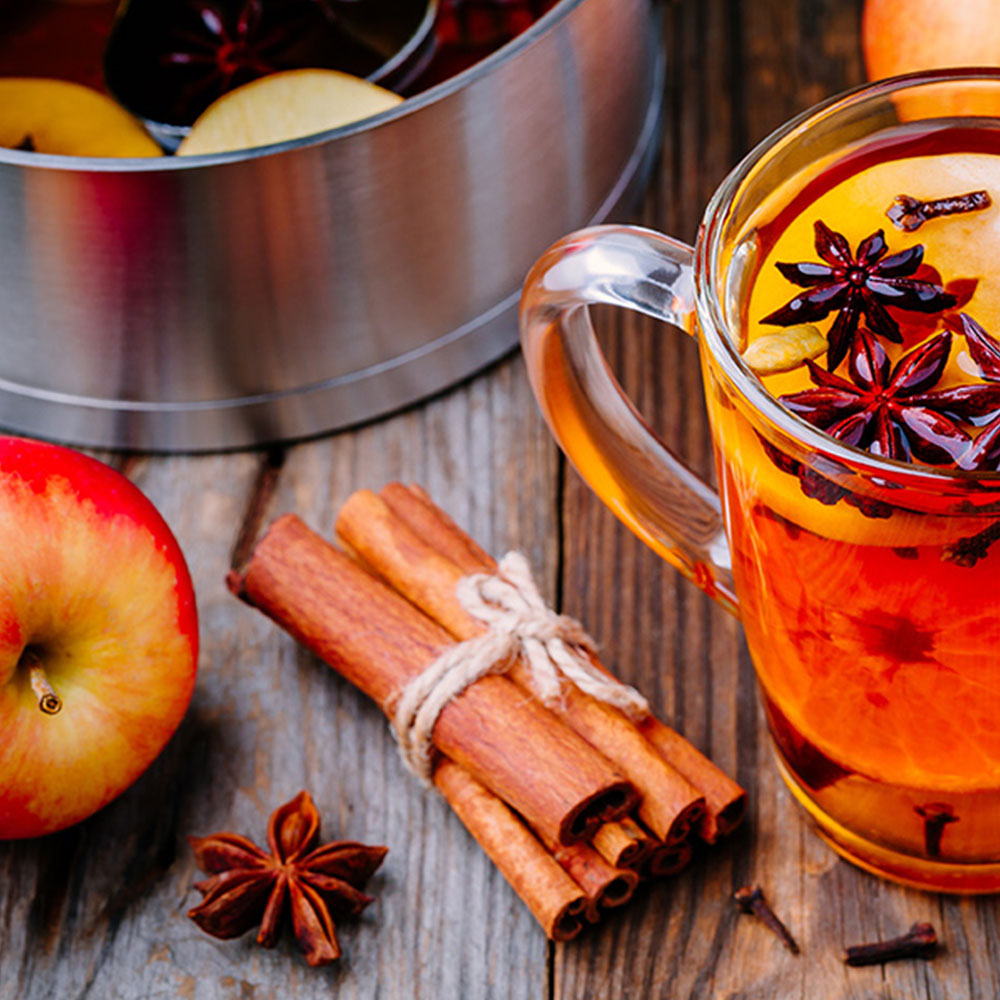30 July 2009
Herbs and Spices for Your Health

Herbal medicine has historically been the primary approach to acute and chronic health problems - this remains the case still in many countries. We often forget that herbal medicine is the most enduring form of treatment and is still used by 80% of the global population as a key component in healthcare.
In the UK, botany and medicine were closely linked until the 19th century. Later, with the development of the NHS in the UK, there was an almost permanent break in use of herbs and spices in British medicine. Yet, in Germany, doctors still routinely prescribe herbs to patients. About 70% of Germany’s population has used herbal products while in the UK the corresponding figure is 20%.
Personally, I have every evening an infusion of freshly picked rosemary after supper and I use echinacea for colds during the wintertime and the Ayurvedic triphala herbal blend for the digestive system.
Aniseed aids the digestion and is good for small children suffering from diarrhoea. With honey, the tea disperses flatulence and for asthma, the tea should be drunk warm; if fennel is added, it helps to ease bronchial catarrh. Chewing aniseed induces sleep and a few seeds taken in warm water will cure hiccups.
All chillies are used medicinally as carminatives, stimulants and aids to digestion and relaxes a sore throat. They are taken as a good source of vitamin C; also, for treatment of dropsy, diarrhoea, lumbago, rheumatism, toothache and gout.
Caraway can be used as a tisane to ease digestive and bowel complaints and it is safe to give to children who generally like the flavour. The seeds can be chewed after a meal to dispel dyspepsia and sweeten the breath.
Chamomile has a soothing effect and is used a tisane for abdominal pains, nervous upsets, cystitis, dilated veins and rheumatism – it can also be used as a mouth rinse for toothache and inflammation. Infusions can be added to steam baths or as compresses for skin troubles (boils, abscesses, eczema), conjunctivitis, haemarrhoids earache and cramp.
Cinnamon is astringent and carminative. It is a strong stimulant for the glandular system, and being an antacid is helpful for stomach upsets and diarrhoea. Cinnamon is good for colds and sore throats. In earlier days, it was used as a breath sweetener, as a tonic for the whole system and was given as a sedative to mothers during childbirth.
Cloves help in treating acidity, thirst, nausea, dysuria, liver dysfunctions, semen disorders, colds and breathing problems.
Couchgrass has been used since the 16th century for cleansing the blood, rheumatic complaints, diseases of the bladder and as a diuretic. It was much praised by Culpeper who used it for all kidney complaints.
Dandelion is recommended for diabetics since its sugars do not burden the metabolism. Dandelion juice has a general strengthening effect on the body systems and is said to be a cure for various ailments such as eczema, blood diseases, loss of appetite and dropsy. Dandelion juice, mixed with agrimony and made into tea, is a well known relief for rheumatism and arthritis. Dandelion’s bitter principles are said to strengthen the stomach, improve digestion and have a beneficial effect on the liver, kidneys and gall bladder.
Fennel seed is a good digestive spice and is used for babies’ gripe water or chewed as a breath freshener. It is helpful medicinally for earache, toothache, coughs and asthma. Fennel seeds stimulate milk production in expectant mothers and are sometimes indicated as being good for weight loss. The seeds are good for the eyes and maybe be infused in water to make a soothing eye lotion.
Garlic cloves can be crushed and infused in water or milk and taken for all digestive disorders and will keep high blood pressure down. It has an antiseptic effect good for infectious diseases and inflammations of the stomach and intestine. It may be used in the treatment of gall bladder and liver troubles, headaches, fits, faintness and skin blemishes.
Lavender has a tranquillising effect; even inhaling its scent will calm troubled nerves and depressed spirits. The leaves and flowers can be used to make a tea for heart palpitations, headaches, fainting, migraine and insomnia. For headache and faintness, a cold lavender compress may be applied to the temples.
Nutmeg was once used to protect against Black Death, but is now used as an expectorant and stimulant that is beneficial for insomnia. It is helpful against flatulence and vomiting, and it helps the digestion generally. In severe case of diarrhoea grate ½ nutmeg and take in a dessertspoon of rum.
Onions have antiseptic, diuretic, expectorant, detoxicant, anthalmintic and antisposmadic qualities. They should be included in the daily diet to discourage coughs and colds. It helps in reducing blood pressure, cleansing the blood generally and in kidney troubles. It also helps to promote digestion, stimulating the appetite and fortifies the nerves, heart and glands. Raw onion juice rubbed on to arthritic and rheumatic joints is believed to relieve the pain.
The ancient Aryans considered black pepper as a powerful remedy for various used for disorders of the bodily system, while the Egyptians used it for embalming. Nowadays, it is used in India for treating coughs and colds, fevers, lack of appetite, indigestion, worms and flatulence. For a cold, take 5 – 15 grains of pepper, grind to a fine powder, taken with honey or sugar; or gargle several times a day with pepper powder in a solution of water to ease a sore throat.
Rosemary has a reputation for strengthening the brain and the memory if applied to the outside of the head. This is because it has properties that expand the tissues to which it is applied so increasing the blood supply to those tissues. Used as an infusion, it is beneficial for the heart and circulation - we often use it as a digestive after a rich meal.
Sage tea is used as a tonic for the nerves and blood, and used as a lotion, is said to improve the condition of hair and skin. As a mouthwash, it helps to keep teeth white. Leaves among clothes discourage insects and rodents. Red sage tea is an old remedy for sore throats.
Turmeric is fundamental to Indian medicine with various properties, including the treatment of skin allergies, diabetes, blood impurities, anaemia, jaundice, fever, worms, stomach disorders, anorexia, coughs and Alzheimer’s. Turmeric is used in India boiled with milk and sugar for a cold and as a remedy for flatulence and liver complaints. Scientists have identified curcumin oil as a chemical trigger that induces haem-oxygenase, which operates as part of the human defence against free radicals. Curcumin has also been shown to be a powerful antiseptic, to guard against liver damage and assist in cancer treatment.




